Lateral presents new 140-metre multihull project
The progressive naval architecture firm has introduced a new highly efficient and hydrodynamic 140m trimaran yacht concept with T. Fotiadis Design…
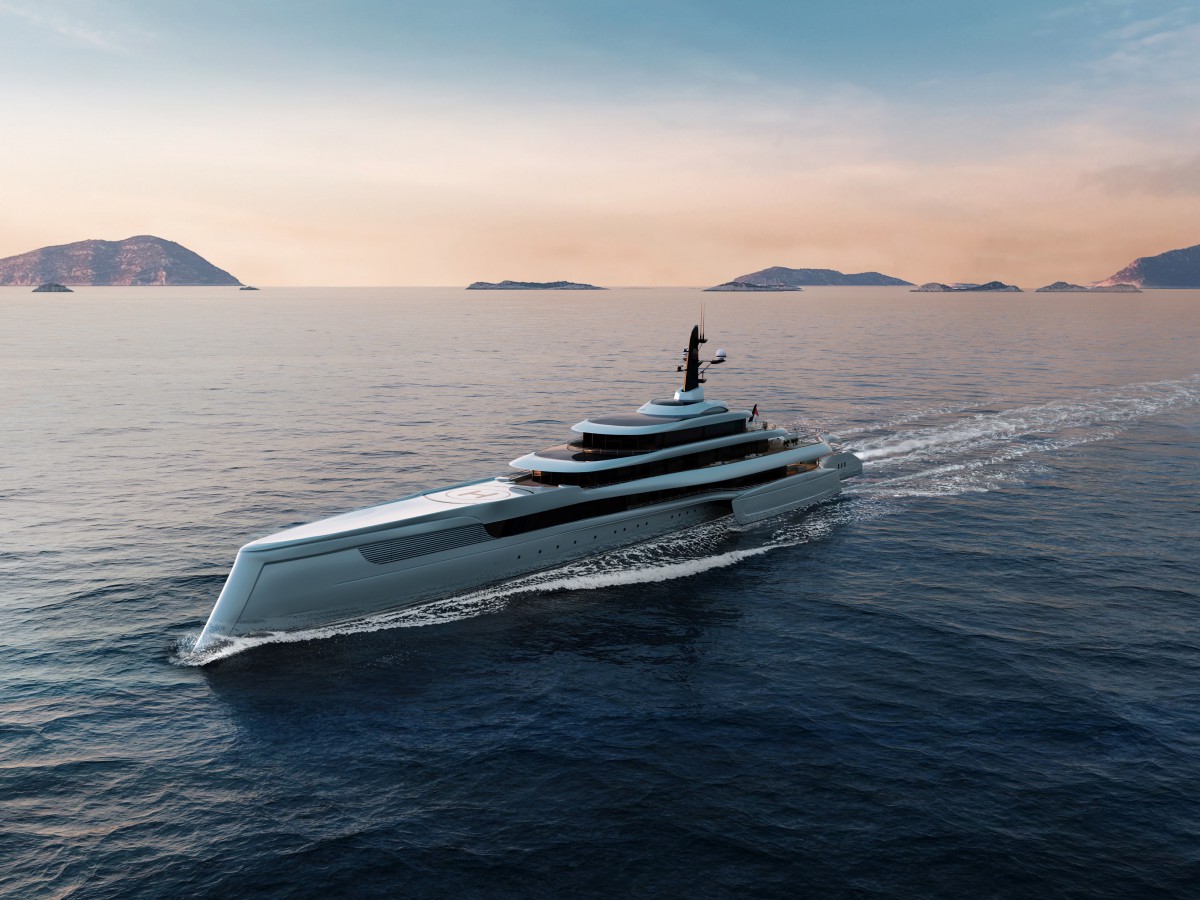
Lateral Naval Architects and T. Fotiadis Design have unveiled a new multihull project, Spear. The 140-metre trimaran project aims to combine comfort, expansive open spaces and enhanced hydrodynamic efficiency.
Multihulls appear to be gaining more traction, however, uptake has been relatively slow in the larger segments, making this development more significant. The adoption of multihull construction methods to increase useable space and stability on board, and boost fuel efficiency while reducing operational costs, are innovations to aspire to should the fleet wish to continue its evolution.
Their design enhances dynamic efficiency in the water, meaning they require less engine power and fuel to achieve the same speed or range compared to traditional single-hull vessels. They are also typically constructed from lighter materials such as aluminium, which reduces submerged weight and minimises wetted surface area, further reducing hydrodynamic drag and fuel consumption.
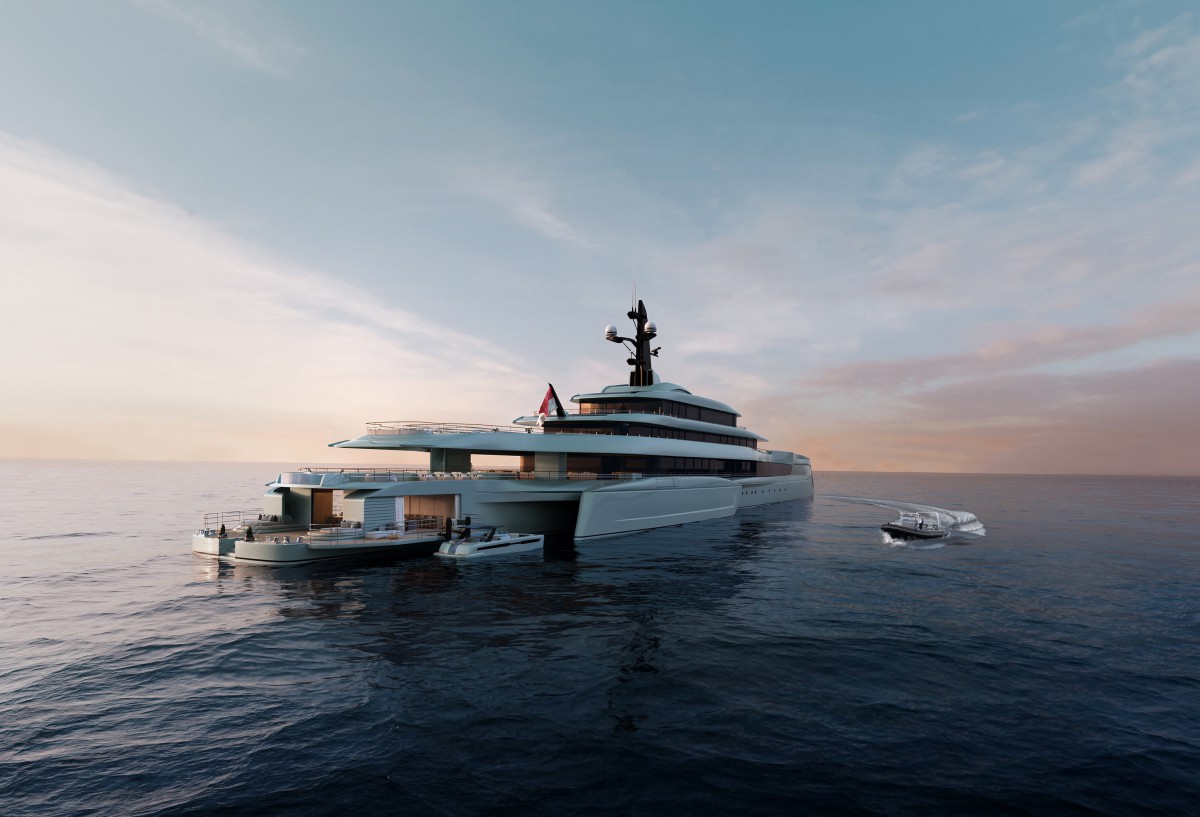
To compare the likes of Spear, with its length of 140 metres and 4650 GT, and a beam overall of 23m to a suitable baseline, Lateral uses the example of a 110-metre monohull of 4400 GT. At a cruise speed of 18 knots, the trimaran's propulsion power needs are 20% lower than the 110m monohull, making Spear’s power demand equivalent to that of an 80m monohull, with twice the usable area.
By leveraging the larger dimensions, Spear features a medium-speed engine at the core of the energy architecture, often found in large commercial vessels. This gives the trimaran a further 15% fuel saving per kW compared to a typical yacht’s high-speed engine.
Sized for an efficient top speed of 21 knots, Spear’s engines then have excess capacity at reduced speeds. Integrating an electrical power (PTO) to the main propulsion shaft (PTI) capable gearbox means the excess capacity can be harnessed to power all the domestic loads of the yacht when cruising.
Coupled with an electrical DC Grid for load balancing, this creates an efficient, flexible fuel system architecture. With its reduced fuel demands and large available tank volumes, this concept can achieve a range exceeding 7500 nautical miles, making the vessel capable of exploring all corners of the globe.
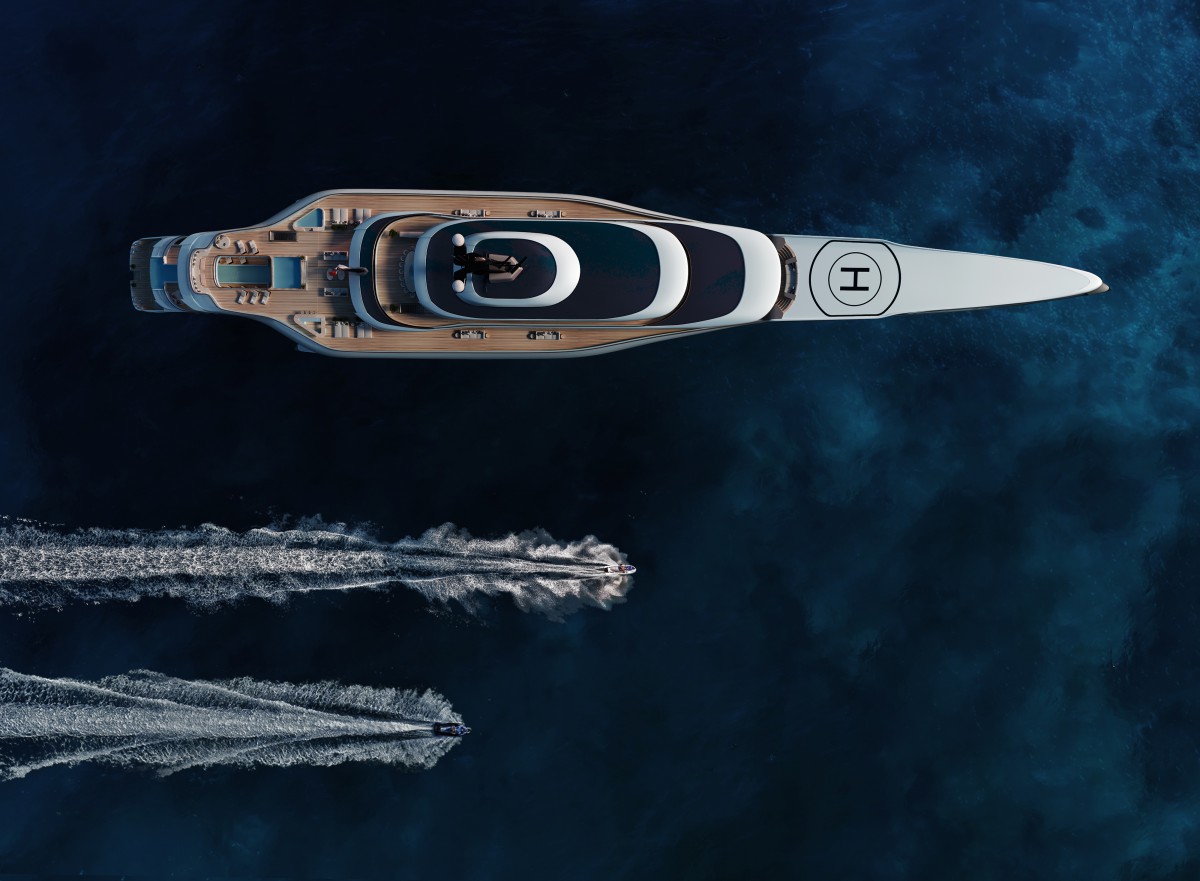
By design, the relatively small sponsons contribute to a platform that needs little support from active stabilisation. Although they are not available for internal space, they do provide valuable tank volumes. This helps to facilitate the inclusion of future fuels, particularly methanol, which combined with the medium-speed engine already incorporated, will be the first viable future fuel solution to reach the market.
The stabilised monohull concept introduces more advantages by also offering a spacious platform, with a 40% increase in the highly sought-after external space whilst keeping the internal luxury area similar to a 110m monohull.
The potential of multihull vessels in the superyacht segment is a core focus of a feature article in the upcoming New Build Report, featuring insights from Echo Yachts and SHADOWCAT, dissecting why uptake has been relatively slow, and why the industry could see a paradigm shift towards multihulls over the next decade.
Profile links
NEW: Sign up for SuperyachtNewsweek!
Get the latest weekly news, in-depth reports, intelligence, and strategic insights, delivered directly from The Superyacht Group's editors and market analysts.
Stay at the forefront of the superyacht industry with SuperyachtNewsweek
Click here to become part of The Superyacht Group community, and join us in our mission to make this industry accessible to all, and prosperous for the long-term. We are offering access to the superyacht industry’s most comprehensive and longstanding archive of business-critical information, as well as a comprehensive, real-time superyacht fleet database, for just £10 per month, because we are One Industry with One Mission. Sign up here.
Related news
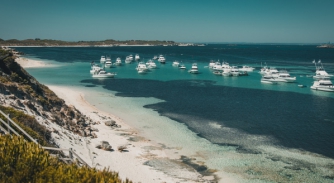
Echo Yachts to build world’s largest sailing catamaran
As the Western Australian industry continues to grow, the Perth-based shipbuilder will construct a fully custom 57-metre, twin-masted catamaran
Fleet
.jpg)
A new era of crossover design
Interview with Michele Dragoni of Dragoni Design Lab about future trends in the market
Fleet

Valentina Zannier founds new design studio
SuperyachtNews sits down with the internationally acclaimed designer following the unveiling of her new studio
Fleet
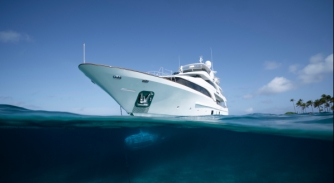
Putting function over form
Dario Schiavo asks, can captains do more to assist shipyards, designers and owners to optimise yacht usability?
Crew
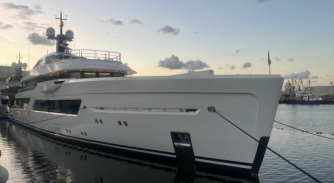
The suggestion box
Dario Schiavo explores the increasingly vital role of open and constructive dialogue between senior crew and designers in ensuring a project's success
Fleet
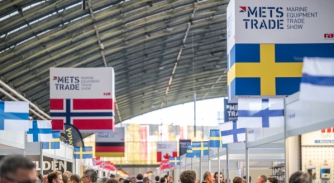
DAME Design Awards finalists announced
METSTRADE has announced 53 products from 19 countries to enter the final round of judgement at RAI Amsterdam in two weeks
Crew
Related news
A new era of crossover design
1 year ago
Valentina Zannier founds new design studio
1 year ago
Putting function over form
1 year ago
The suggestion box
1 year ago
DAME Design Awards finalists announced
1 year ago
NEW: Sign up for
SuperyachtNewsweek!
Get the latest weekly news, in-depth reports, intelligence, and strategic insights, delivered directly from The Superyacht Group's editors and market analysts.
Stay at the forefront of the superyacht industry with SuperyachtNewsweek



